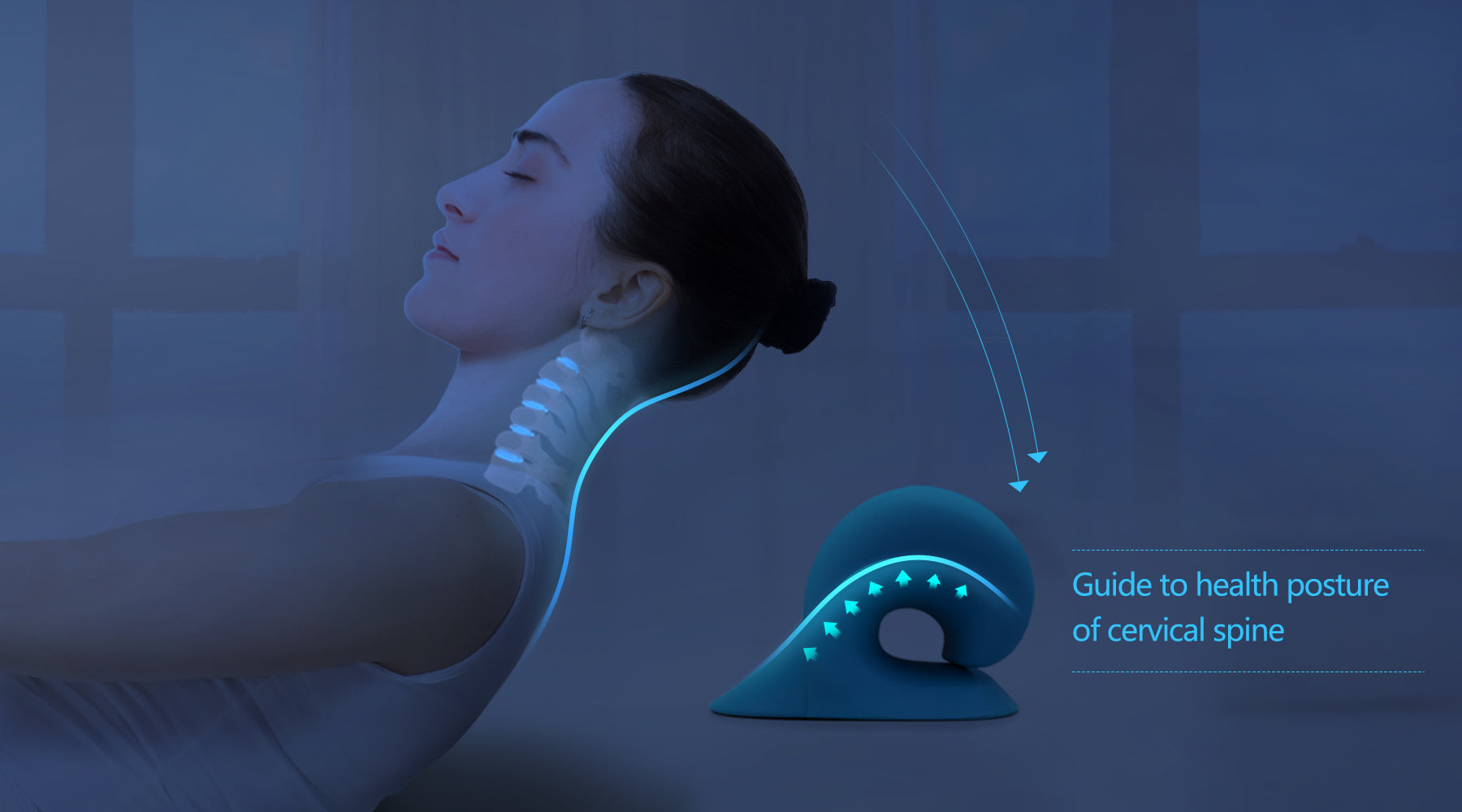Neck Cloud: Innovative Assistance for Discomfort Relief and Better Pose
Neck Cloud: Innovative Assistance for Discomfort Relief and Better Pose
Blog Article
The Effect of Tension on Neck Discomfort: Strategies for Lowering Tension and Pain
In today's busy world, it's no secret that stress has actually come to be a prevalent factor in the beginning and worsening of neck discomfort. Join us on a trip to unwind the impact of tension on neck pain and discover reliable means to ease pain and enhance overall high quality of life.
Comprehending Stress-Related Neck Discomfort
Neck pain is a common problem that can typically be credited to anxiety. Stress-related neck discomfort can manifest as tension, stiffness, or discomfort in the neck and shoulder location. The connection between anxiety and neck discomfort depends on the body's physical action to stress and anxiety, which can cause muscle stress and rigidity in the neck muscle mass. Persistent anxiety can cause relentless neck pain and worsen status quo like cervical spondylosis or muscle pressures.

Identifying Common Tension Locations
Often experienced by people under stress, tension locations in the body can provide beneficial insights into the physical symptoms of mental stress. One usual tension area is the neck, where stress and anxiety frequently materializes literally. Stress frustrations, rigid neck muscular tissues, and restricted variety of motion are common symptoms of stress-related neck tension. The shoulders are an additional typical area where tension gathers. Stress can cause the muscle mass in the shoulders to tighten up, causing pain and pain. Additionally, the top back is susceptible to tension accumulation, especially in people who experience persistent anxiety. Poor position and extended resting can intensify stress around. The jaw is also a common location for stress-related tension, as many individuals clench their jaw or grind their teeth when emphasized. Understanding these usual stress locations can aid individuals recognize the physical signs of anxiety and take steps to address them before they escalate into persistent discomfort or pain.
Carrying Out Relaxation Strategies
To effectively take care of stress-related stress in the body, implementing relaxation techniques is vital. Leisure techniques are beneficial devices for lowering neck pain brought on by anxiety. Deep breathing exercises can assist calm the mind and loosen up strained muscles in the neck and shoulders (neck cloud). Practicing mindfulness reflection can also be advantageous in reducing anxiety and promoting leisure. Dynamic muscle mass relaxation, where you methodically tense and afterwards kick back various muscular tissue groups, can release built-up stress in the neck area. Furthermore, tasks like yoga exercise and tai chi integrate both physical movement and leisure, making them reliable practices for lowering stress and anxiety and neck discomfort. Taking routine breaks throughout the day to stretch and take a break can avoid muscle tightness and tension from building up. By incorporating these relaxation methods into your daily routine, you can assist handle anxiety degrees, minimize stress in the neck, and reduce pain connected with stress-induced neck discomfort.
Incorporating Self-Care Practices
Integrating self-care techniques is important for maintaining general wellness and handling stress-related neck pain successfully. Taking part in regular exercise, such as their website mild stretching workouts or yoga exercise, can help alleviate stress in the neck and shoulders. Exercising excellent posture throughout the day and taking regular breaks from long term resting or screen time can additionally avoid pressure on the neck muscles.
Additionally, prioritizing adequate sleep and developing a consistent rest routine can contribute dramatically to minimizing tension levels and advertising relaxation. Producing a relaxing going to bed routine, such as checking out a book or taking a cozy bathroom, can assist prepare the body and mind for peaceful sleep. Additionally, maintaining a well balanced diet regimen rich in nutrients and staying hydrated can support general health and minimize swelling that may aggravate neck discomfort.
Incorporating mindfulness techniques, such as deep breathing workouts or reflection, can aid take care of tension and advertise relaxation. Taking some time for oneself, participating in leisure activities, and setting boundaries to safeguard individual time are likewise essential elements of self-care that can add to lowering anxiety and minimizing neck discomfort.
Seeking Expert Assistance
How can individuals properly deal with consistent neck discomfort read the article that is affecting their everyday life and well-being? Looking for specialist assistance can be an important step in managing and minimizing neck browse around here discomfort.
Chiropractic doctors specialize in spine manipulation strategies to improve alignment and lower tension in the neck area. Physiotherapists supply targeted stretches and workouts to enhance muscle mass, enhance adaptability, and enhance general neck function. Orthopedic professionals can supply sophisticated medical interventions such as injections or medical choices for severe instances of neck discomfort.
Conclusion

Stress-related neck discomfort can materialize as stress, rigidity, or discomfort in the neck and shoulder area. The connection between anxiety and neck pain lies in the body's physical feedback to tension, which can result in muscle stress and rigidity in the neck muscle mass. Stress migraines, rigid neck muscle mass, and restricted range of motion are usual signs and symptoms of stress-related neck stress. By integrating these leisure techniques right into your daily regimen, you can aid manage stress levels, decrease tension in the neck, and ease pain linked with stress-induced neck discomfort.

Report this page